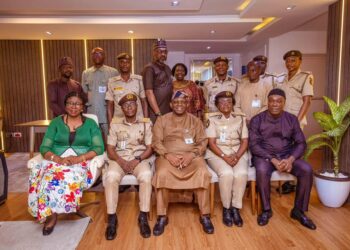As expected Nigeria has secured a second term on the council seat at the International Maritime Organisa
tion (IMO) and we are (expectedly) excited about it.
Unlike what happened in 2007, Nigeria did not have to spend so much money and time transversing the whole of Africa before we got the nod to carry on. In 2007, government’s lobby team comprised of transport ministry officials and top officials of agencies within the maritime sector.
The success of 2007 was made possible by the collaboration of ministry agencies which ordinarily would not have cared a hoot whether or not we made the list. They probably would have seen it as purely an affair of the Nigerian Maritime Administration and Safety Agency, (NIMASA). They were all part of the team that toured different parts of the continent to solicit for support of sister African nations.
Without mincing words, kudos must be given to the immediate past director general, Nigerian Maritime Administration and Safety Agency, Dr Shamsudeen Dosunmu for securing the 2007 mandate, without which 2009 would have been impossible. We recall that there was a lot of determination on the part of the lobby team to regain the pride which Nigeria lost a few years ago when Engr. Festus Ugwu (now deceased) was the director general of the then-National Maritime Authority.
To emerge victorious in 2007, Nigeria garnered 87 votes to beat Liberia which got 74 votes and Angola which scored 42 votes. She emerged 19th in the 20-member Category ‘C’council. It is on record that Nigeria’s victory was ably made possible by some African countries, especially, Ghana which was the first to step down for Nigeria. Ghana not only stepped down for Nigeria, she also campaigned for our emergence as a member of the elite IMO Council.
But last week, Nigeria not only polled 121 votes out of the available 153 votes, she also stepped up the ladder from 19th position to place 8th, out of 22 contesting nations.
As at 2007 when Nigeria was canvassing for a return to the IMO Council seat, her profile was not as robust as today. Today, Nigeria hosts a world – class Regional Maritime Rescue Coordination Centre (RMRCC).
Apart from ratifying and domesticating scores of conventions, Nigeria has been performing search and rescue functions to the admiration of her neighbouring and the global community.
For example, in the recent past, distressed ships have been rescued by search and rescue team from NIMASA. The most recent of these ships being the duo of MV Lilian Carneiro and MV Tangl which were rescued on Nigerian waters.
Apart from the excellent search and rescue operations which are buoyed by the RMRCC, ratification and domestication of key IMO conventions, establishment of the world-acclaimed Seafarers Identity Document (SID) clear evidences that Nigeria is a force to reckon with in global maritime community.
Now that Nigeria has got a second term mandate in the Council, the most pertinent question to ask is: did we effectively use the first term to advance the cause of Nigerian maritime industry stakeholders; especially, seafarers and ship owners.
We had advised in 2007 shortly after we won the seat that Nigeria should take advantage of her emergence as one of the 40 privileged countries in the IMO.
The advice is still pertinent, even as we celebrate our second victory at the IMO and we can only advice that the new management of NIMASA should not relent or rest on its oars.
Indeed, Nigeria can move up to category ‘B’ and even ‘C ‘. To achieve this, Nigeria will need to boost her ownership of ships and provision of shipping services and also achieve ownership of a larger chunk of global freight.
This is where NIMASA will need to do more in the area of ship acquisition, we can at east start from there and coupled with our population, our ambition to move up the ladder is indeed achievable.
It is gladdening that the new management of NIMASA is already working towards reorganizing our ship registry with the aim of making it more attractive to ship owners.
It is also advisable that the agency uses the opportunity of a second term to ensure a more efficient execution of its mandate to indigenous ship owners and Nigerian seafarers.
















Discussion about this post